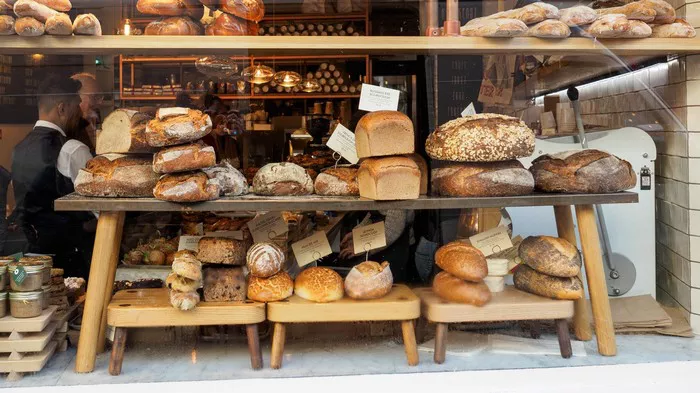F.O.G. Architecture unveils its latest venture, the Cycle Cycle mobile bakehouse, a unique fusion of a café and bakery designed to celebrate the connection between food and the earth. Drawing inspiration from traditional farm structures, the wooden framework resembles a barn, complete with a front shading board and a rainproof canopy at the rear. Adding to its rustic appeal, the facade is adorned with stacks of grain sacks reminiscent of brickwork, while a ladder on the side mirrors the straw sheds commonly found in rural landscapes. The raw texture of the canopy and mats further enhances the natural aesthetic, embracing the untamed beauty of the wilderness.
The innovative design allows for seamless integration of the interior activities with the exterior environment. Strategically placed openings in the facade offer glimpses of coffee brewing and bread packaging, inviting natural light into the space. By adjusting the shading board and curtains, a semi-private area can be created, catering to varying degrees of interaction and privacy. Notably, the placement of grain sacks and curtain length were determined collaboratively on-site, fostering a sense of spontaneity and community involvement.
Emphasizing adaptability and mobility, the Cycle Cycle mobile bakehouse features a prefabricated modular structure, facilitating easy transportation and setup in diverse urban settings. Inspired by the simplicity of farm life, the outdoor seating area adopts a low bench design, encouraging patrons to connect with the ground. The grain sack facade serves dual purposes, acting as both a decorative element and a functional back cushion, with the option for privacy provided by the draped curtains.
Documenting the reception of the pop-up across various cities in China, F.O.G. Architecture gained insights into its usability and adaptability. Despite occasional deviations from the original design intent, the process of evolution and adaptation remains an integral part of the project’s journey. As F.O.G. reflects, “Sometimes our creations take on a life of their own, but it’s all part of the exploration as we continue to evolve and innovate.”

